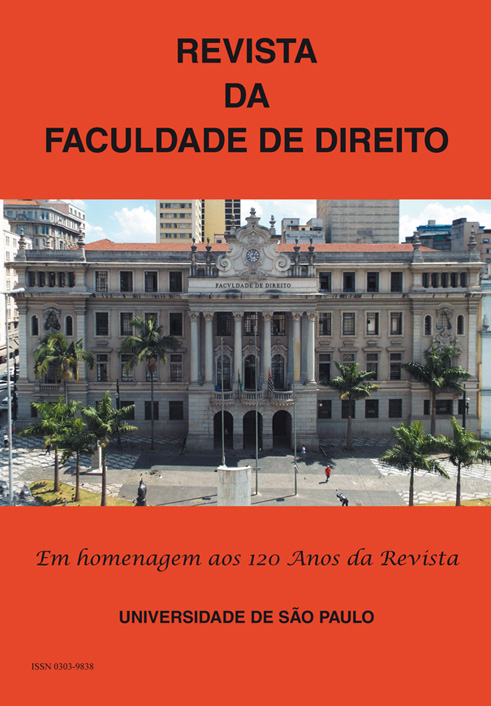Social movements and law: the meaning of the confrontation
Keywords:
Systems theory, Legal system, Social movements, Meaning, Institutionalization, Consensus.Abstract
This paper aims to describe, based on systems theory formulated by Niklas Luhmann, a specific mechanism developed by social movements, through meaning, to make their critical function against society and confrontation in face of the function systems, especially about law. The mobilization of social movements can be described as condensation of consensus (inner), necessary to the formation and unity of these systems, in order to affect the structure of the functional system, proposing its variation so that it creates instability in the medium and reorients the difference between update and potentialities into the mentioned system – what is made through the generalization of dissent (outer).
Downloads
References
ALONSO, Ângela. As teorias dos movimentos sociais: um balanço do debate. Lua Nova, n. 76, p. 49-86, 2009.
CAMPILONGO, Celso Fernandes. Interpretação do direito e movimentos sociais. Rio de Janeiro: Elsevier, 2012.
COHN, Gabriel. As diferenças finas: de Simmel a Luhmann. Revista Brasileira de Ciências Sociais – Associação Nacional de Pós-graduação em Pesquisa em Ciências Sociais, v. 13, n. 38, p. 53-62, out. 1998.
CORSI, Giancarlo; ESPOSITO, Elena; BARALDI, Claudio. GLU: Glossario sobre la teoría social de Niklas Luhmann. Tradução de Miguel Romero Pérez e Carlos Villalobos. México: Universidad Iberoamericana, 1996.
DE GIORGI, Raffaele. Direito, tempo e memória. Tradução de Guilherme Leite Gonçalves. São Paulo: Quartier Latin, 2006.
LUHMANN, Niklas. Complejidad y sentido. In: ______. Complejidad y modernidad: de la unidad a la diferencia. Tradução de Josetxo Beriain e José María García Blanco. Madrid: Trotta, 1998. p. 25-30.
______. El derecho de la sociedad. Tradução de Javier Torres Nafarrete, com a colaboração de Brunhilde Erker, Silvia Pappe e Luis Felipe Segura. 2. ed. em espanhol. México: Herder, 2005.
______. La sociedad de la sociedad. Tradução de Javier Torres Nafarrete. México: Herder, 2006.
______. Meaning as sociology’s basic concept. In: ______. Essays on Self-Reference. New York: Columbia University Press, 1990, p. 21-79.
______. Sistemas sociales: lineamientos para una teoría general. Tradução de Silvia Pappe y Brunhilde Erker. Barcelona: Anthropos; México: Universidad Iberoamericana; Santafé de Bogotá: CEJA, Pontifícia Universidad Javeriana, 1998.
______. Sociologia do direito. Tradução de Gustavo Bayer. Rio de Janeiro: Edições Tempo Brasileiro, 1983. v. 1.
VILLAS BÔAS FILHO, Orlando. Teoria dos sistemas e o direito brasileiro. São Paulo: Saraiva, 2009.
Downloads
Published
Issue
Section
License
Copyright (c) 2013 Revista da Faculdade de Direito, Universidade de São Paulo

This work is licensed under a Creative Commons Attribution-NonCommercial-ShareAlike 4.0 International License.


